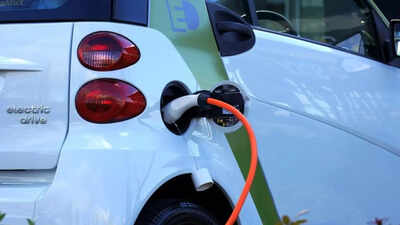Volvo to cut 3,000 white-collar jobs amid rising costs and EV market slowdown: Report |

Volvo Cars, a well-known Swedish automobile manufacturer in the vanguard of safety features and technological advancements, is initiating a large-scale workforce overhaul amidst increasing economic and industry pressures. Volvo Cars intends to lay off approximately 3,000 mostly white-collar workers in the wake of increasing operational expenses, declining electric vehicle demand, and rising trade uncertainties, especially with regard to tariffs. This move is a strategy to regain financial health and business efficiency, as Volvo is faced with low share price and changing world market trends. The restructuring takes into consideration the company’s determined effort to modify its business model for long-term competitiveness with an ever-growing complexity of the car industry.
Volvo to cut 3,000 jobs amid EV slowdown
Volvo Cars (VOLCARb.ST) revealed on Monday that it would cut about 3,000 mostly white-collar jobs under a broad restructuring plan launched last month. The action is a strategic move in response to various urgent issues confronting the group, such as high operating expenses, slowing electric vehicle (EV) demand, and persistent trade uncertainty.The automaker’s work force reduction program is meant to overcome these challenges while rejuvenating its heavily languished share price and enhancing demand for its product lineup. Through the streamlining of operations and cost reductions, Volvo hopes to position itself more effectively for long-term growth in an uncertain worldwide automobile market.
Volvo CEO targets $1.9 billion in savings through sweeping white-collar job cuts
Volvo Cars CEO Håkan Samuelsson, who took back his role after a temporary break, set out the cost-cutting initiative in April. The program aims for a total of 18 billion Swedish crowns ($1.9 billion) in cost savings. Much of that savings will be achieved from white-collar employee cuts, who make up about 40% of the company’s total employees.Samuelsson highlighted the wide scope of the reduction in force, saying, “It’s white collar to almost all functions, including R&D, communication, and human resources. So it’s everywhere, and it’s a considerable reduction.” He also commented on the anticipated payoffs, saying that the restructuring will not only save costs but also provide ways for employees who remain to increase responsibility, thereby making organizations stronger and more efficient.
Volvo CFO confirms job cuts will hit all divisions
Volvo Cars’ new Chief Financial Officer, Fredrik Hansson, gave more information, affirming that all departments and sites will be impacted, but the majority of job reductions will take place at the company’s headquarters in Gothenburg, Sweden. Hansson characterized the restructuring as a thorough process for making Volvo organizationally more efficient, stating that the precise nature of the workforce adjustments will differ by area of business.These job cuts represent about 15% of its office staff, according to the company. The restructuring effort will cost about 1.5 billion Swedish crowns one-time. Volvo Cars has its main bases of operation in Europe and China, which makes it more sharply exposed to any new United States tariffs than most of its European rivals. The firm has indicated that rising US tariffs have the potential to undermine its prospects for exporting cheaper cars to the American market, thus limiting its growth prospects.The company’s labor force breakdown demonstrates this international reach: in 2024, Volvo had about 29,000 employees in Europe, 10,000 in Asia, and 3,000 in the Americas.
Volvo aims to finalise restructure by Autumn 2025 amid industry support
The automaker intends to complete its new structure by autumn 2025. The industry experts in general have received the move positively as a step toward making operations more efficient. Handelsbanken analyst Hampus Engellau said that the extent of the job cuts is in line with market expectations and was positive on the restructuring.Volvo has pulled back its financial guidance due to uncertain market conditions characterized by falling consumer optimism and trade tensions that have shaken the world automotive industry.Also Read | India proposes new FASTag toll system with Rs 3,000 annual pass: What it is, pricing options and all you need to know





